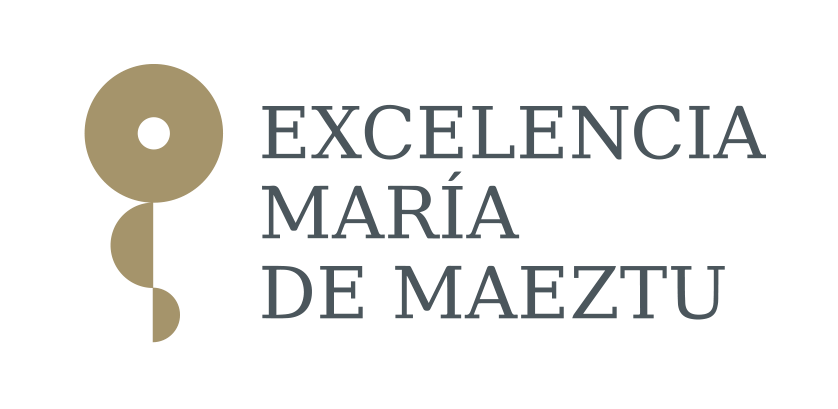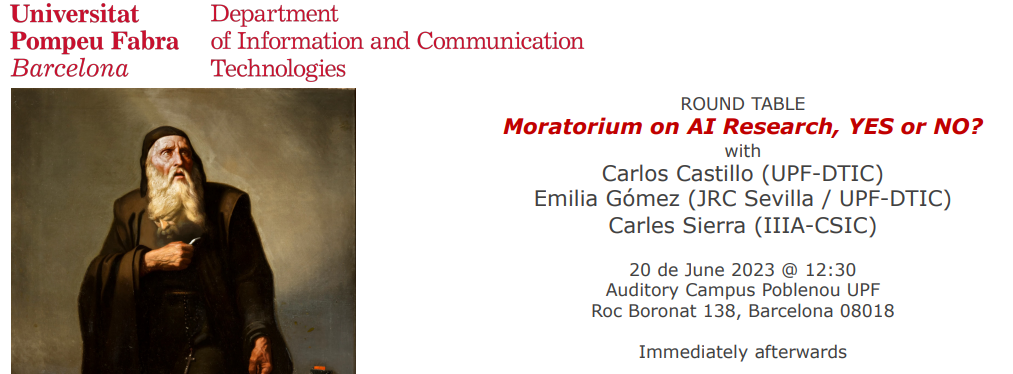The second Maria de Maeztu Strategic Research Program (CEX2021-001195-M) of the Department of Information and Communication Technologies (DTIC) takes place between 2023 and 2026. The website for this program is under construction. You can find some details in this news.
The first María de Maeztu Strategic Research Program (MDM-2015-0502) took place between January 2016 and June 2020. It was focused on data-driven knowledge extraction, boosting synergistic research initiatives across our different research areas.
Pompeu Fabra University to welcome Nobel Prize winner Aaron Ciechanover
On the occasion of its 25th anniversary, UPF has invited the winner of the Nobel Prize for Chemistry (2004) to give a lecture on the elimination of residual proteins in cells. The talk will take place on 1 April at the Barcelona Biomedical Research Park.
 The researcher Aaron Ciechanover, director of the Rappaport Faculty of Medicine and Research Institute of the Technion Israel Institute of Technology and winner of the Nobel Prize for Chemistry in 2004, will give the conference on 1 April entitled “The Ubiquitin Proteolytic System: From Basic Mechanisms through Human Diseases and on to Drug Targeting”. The event, part of the 25th anniversary celebrations at UPF, will be presided by the University rector, Jaume Casals, accompanied by Quim Gea, dean of the Faculty of Health and Life Sciences, and David Comas, director of the Department of Experimental and Health Sciences (DCEXS). It is scheduled for 12.00 non at the Auditorium of the Barcelona Biomedical Research Park (PRBB).
The researcher Aaron Ciechanover, director of the Rappaport Faculty of Medicine and Research Institute of the Technion Israel Institute of Technology and winner of the Nobel Prize for Chemistry in 2004, will give the conference on 1 April entitled “The Ubiquitin Proteolytic System: From Basic Mechanisms through Human Diseases and on to Drug Targeting”. The event, part of the 25th anniversary celebrations at UPF, will be presided by the University rector, Jaume Casals, accompanied by Quim Gea, dean of the Faculty of Health and Life Sciences, and David Comas, director of the Department of Experimental and Health Sciences (DCEXS). It is scheduled for 12.00 non at the Auditorium of the Barcelona Biomedical Research Park (PRBB).
Like multicellular organisms, cells need to remove residual substances to cleanse themselves. Aaron Ciechanover, together with Avram Hershko and Irwin Rose, discovered the cellular process that allows the excretion of waste proteins: ubiquitination. Ubiquitin, a molecule that seems to be present in almost all tissues (hence its name, from ”ubiquitous“), binds to certain proteins and drives them towards the proteasome, a cell complex that degrades them in order to allow their subsequent recycling. The discovery of ubiquitination, a key mechanism in processes such as cell division cycle, DNA repair or the action of the immune system, led the three researchers to win the Nobel Prize for Chemistry in 2004. Ubiquitination is an essential process for the proper functioning of cells and its alteration has been involved in illnesses such as cancer or neurodegenerative disorders.
Aaron Ciechanover was born in 1947 in Haifa, in what was then the British Protectorate of Palestine (it became Israel the following year). He and his elder brother Joseph were encouraged to study from an early age. Ciechanover majored in biology at school, and went on to graduate in medicine in 1970 and receive his MSc in 1975, both from the Hadassah Medical School of the Hebrew University in Jerusalem. After three years’ military service as a military physician in the Israeli Defense Forces, he joined Avram Hershko’s laboratory in the Faculty of Medicine at the Technion (Israel Institute of Technology) in Haifa in 1976, where he received his PhD (Sc) in 1981.
With two fellowships (from the Leukemia and Lymphoma Society of America and the Israel Cancer Research Fund), Ciechanover went on to carry out postgraduate studies under the supervision of Harvey Lodish at the Massachusetts Institute of Technology (MIT). Three years later, in 1984, he returned to Israel to join the Faculty of Medicine at the Technion where he continued his research with many students, fellows and physicians, and where he is currently a Distinguished Research Professor in the Center for Cancer and Vascular Biology in the Rappaport Faculty of Medicine and Research Institute. In 2000 he received the Albert Lasker Award for Basic Medical Research and in 2003 the Israel Prize for Biological Research. Among many esteemed institutions, he is a member of the Israeli Academy of Sciences and Humanities, the Pontifical Academy of Sciences of the Vatican and the USA National Academy of Sciences (NAS).
- What? Conference “The Ubiquitin Proteolytic System: From Basic Mechanisms through Human Diseases and on to Drug Targeting”, by Aaron Ciechanover
- When? Friday, 1 April, at 12.00 noon
- Where? Auditorium of the Barcelona Biomedical Research Park (Dr. Aiguader 88, Barcelona)
- Free entrance. Registration by e-mail to [email protected]
Related Assets
Department of Information and Communication Technologies, UPF
Grant CEX2021-001195-M funded by MCIN/AEI /10.13039/501100011033


Department of Information and Communication Technologies, UPF
- Àngel Lozano - Scientific director
- Aurelio Ruiz - Program management




